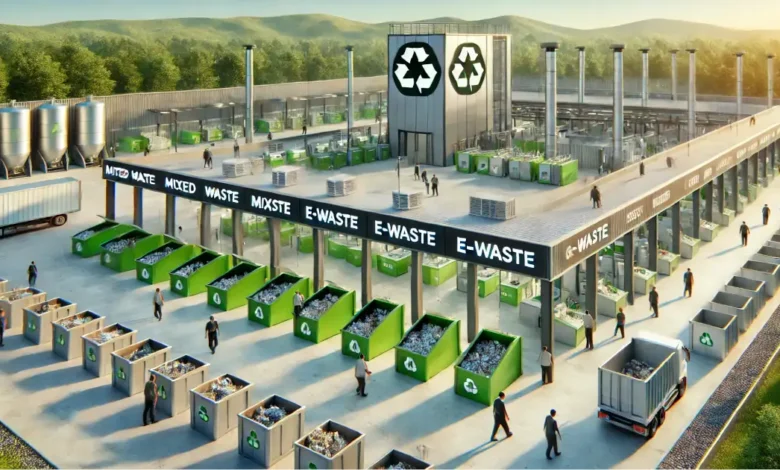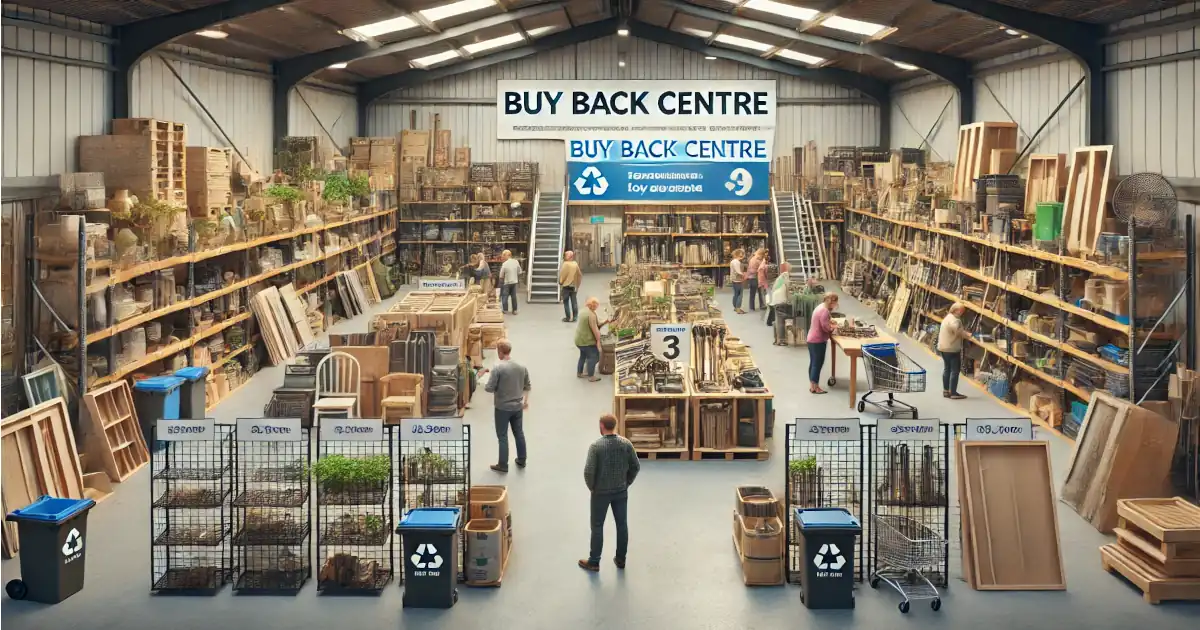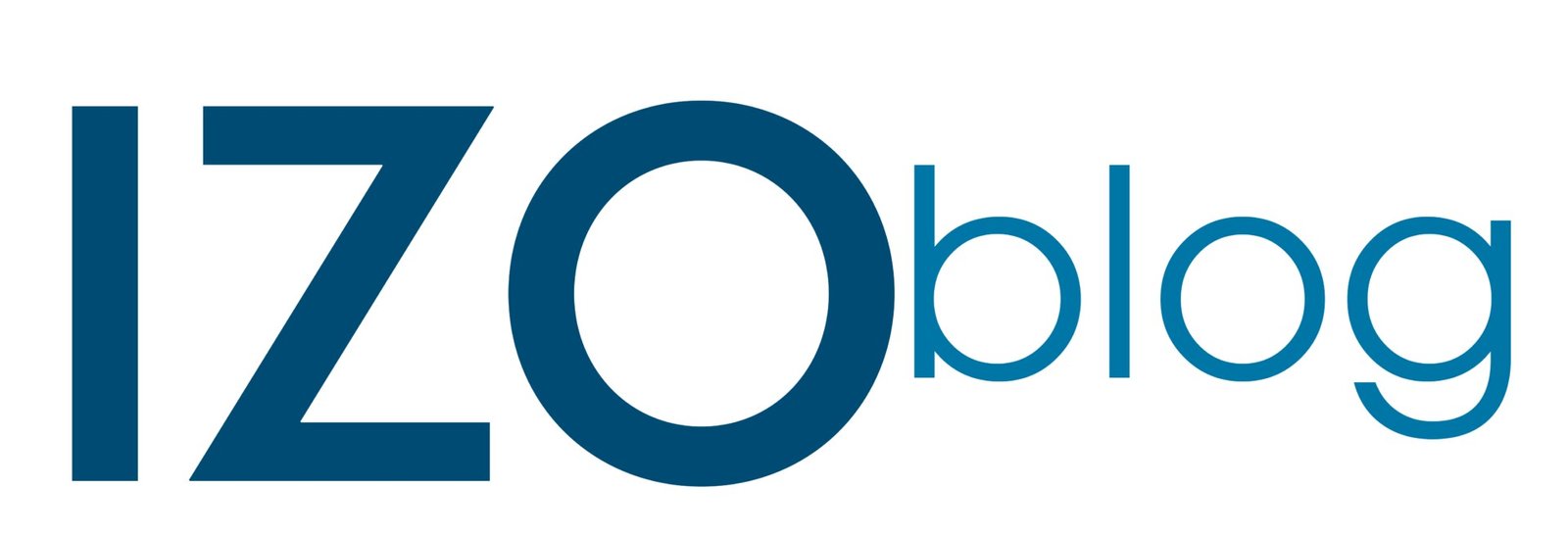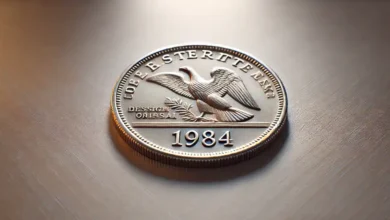Kimbriki Tip Prices: A Comprehensive Guide to Sustainable Waste Management

Understanding Kimbriki Tip Prices for Sustainable Waste Management
The Kimbriki Resource Recovery Centre, located on Sydney’s Northern Beaches, serves as a leading example of sustainable waste management and recycling. Established under the Northern Beaches Council and Mosman Council, Kimbriki focuses on environmental preservation by offering a range of eco-friendly services. These services include everything from general waste disposal to specialized recycling programs, all aimed at reducing landfill use and supporting the local community in managing waste responsibly.
With a mission to foster environmental stewardship, Kimbriki encourages residents to adopt sustainable disposal practices, supporting resource recovery and waste reduction. The facility also provides educational programs and free recycling services for materials like e-waste, batteries, and metals, making it easier for residents to recycle. Understanding Kimbriki’s fee structure is essential for residents and visitors, as it allows them to make informed, cost-effective, and environmentally conscious decisions. Through these efforts, Kimbriki not only minimizes landfill impact but also promotes the repurposing and recycling of valuable materials, reinforcing its role as a cornerstone of sustainable living in the region.
Detailed Breakdown of Waste Types and Their Disposal Fees at Kimbriki
Kimbriki Resource Recovery Centre provides various waste disposal options tailored to meet the needs of residents, non-residents, and trade visitors. Their structured pricing encourages responsible waste management by offering free recycling services for certain items and reduced rates for well-sorted waste. Here’s an in-depth look at the main categories of waste Kimbriki handles and how to make the most of these services.
1. Mixed Waste
Mixed waste, comprising general household items or non-recyclable materials, comes with specific fees depending on residency status:
- Resident Fees: Residents of Northern Beaches and Mosman Councils benefit from a discounted rate of $40 for up to 100 kg of mixed waste, with incremental increases for higher weights. To keep costs down, residents are encouraged to sort materials before arrival, as well-sorted items can often be recycled for free.
- Non-resident Fees: Non-residents and trade visitors pay a base rate of $60 for up to 120 kg of mixed waste, with additional charges applied as weight exceeds the minimum threshold. Sorting waste by material can help avoid these mixed-waste fees, as recyclable items may be eligible for free drop-off.
Additional Tips: Kimbriki suggests categorizing waste into distinct types (e.g., metal, cardboard) to minimize fees associated with mixed loads. This approach benefits both visitors’ wallets and the environment by maximizing recyclable content and reducing landfill waste.
2. Vegetation (Green Waste)
Green waste disposal at Kimbriki is structured to promote eco-friendly garden waste management, with distinct benefits for residents.
- Resident Benefits: Residents can dispose of up to 300 kg of green waste daily at no charge, which supports sustainable gardening practices by diverting organic matter from landfills.
- Non-resident and Trade Fees: For non-residents and trades, the minimum green waste fee is $30 for up to 100 kg, with added charges for oversized materials such as large logs or stumps that require specialized processing.
Kimbriki’s recycling of green waste contributes to soil health and gardening needs, as processed green waste can be transformed into compost and mulch. This approach benefits the environment and aligns with sustainable waste reduction goals.
3. Concrete, Bricks, and Tiles
Kimbriki encourages the recycling of construction and renovation waste, providing a sustainable alternative to traditional disposal methods for concrete, bricks, and tiles.
- Recycling Fee: Clean concrete, bricks, and tiles measuring under 500 mm are accepted at a rate of $23.50 per tonne. This fee supports recycling efforts that reduce landfill use and allow construction materials to be repurposed.
- Mixed or Oversized Materials: If concrete or bricks are mixed with other waste types or exceed size limits, additional fees are applied due to the extra processing required. By sorting construction materials in advance, visitors can avoid mixed-load charges, reduce disposal fees, and support Kimbriki’s recycling objectives.
This service enables builders, renovators, and DIY enthusiasts to dispose of their materials responsibly, aligning with environmental guidelines and helping to keep landfills clear of reusable resources.
4. Asbestos Disposal
Asbestos, due to its hazardous nature, is handled under strict safety protocols at Kimbriki. The centre’s specialized asbestos disposal service ensures safety while managing this material responsibly.
- Special Pricing and Safety Requirements: Asbestos disposal is priced at $600 per tonne to reflect the high level of safety and processing required for handling hazardous materials.
- Health and Safety Protocols: Asbestos must be double-wrapped in heavy-duty plastic and clearly labeled. Disposal arrangements should be made with Kimbriki beforehand to ensure proper procedures are followed.
These rigorous protocols protect the health of staff and the public, ensuring that asbestos is managed in an environmentally sound manner. For the safety of all visitors, it is crucial to strictly adhere to Kimbriki’s guidelines for asbestos handling and disposal.
5. E-Waste, Metal, and Free Recycling Options
Kimbriki promotes recycling by offering free drop-off services for several common recyclable items, encouraging residents to reduce landfill impact by responsibly disposing of e-waste, metals, and other materials.
- Free Recycling for Key Items: Residents can dispose of items such as electronics (e.g., televisions, laptops), scrap metals, cardboard, and paper at no charge, reducing the volume of waste sent to landfills.
- Examples of Eligible Items: Popular items eligible for free recycling include household batteries, TVs, computers, and other electronic appliances. By participating in Kimbriki’s recycling programs, residents contribute to resource recovery and cost-saving efforts.
This initiative supports Kimbriki’s goal of sustainable waste management, providing residents with practical options for disposing of e-waste and other recyclables.
Additional Services Offered by Kimbriki
1. The Buy Back Centre
Kimbriki’s Buy Back Centre exemplifies its commitment to a circular economy by offering reusable items salvaged from waste. The Buy Back Centre provides budget-friendly options while reducing landfill contributions.
- Unique Inventory: The centre offers a rotating selection of second-hand furniture, building materials, garden tools, and other items at discounted rates, making it a go-to for those looking to save on home and garden supplies.
- Environmental Benefits: By allowing items to be repurposed instead of discarded, the Buy Back Centre extends the lifecycle of various goods, reduces waste volume, and promotes eco-conscious purchasing choices.
This service appeals to environmentally mindful shoppers and budget-conscious residents alike, contributing to Kimbriki’s larger waste reduction goals.
2. Eco House & Garden Programs
Kimbriki’s Eco House & Garden programs offer a range of educational workshops and resources on sustainable living. These programs equip residents with the tools and knowledge needed to adopt eco-friendly practices at home, promoting a sustainable lifestyle beyond waste disposal.
- Workshops on Sustainable Living: Covering topics like composting, organic gardening, waste sorting, and recycling, these workshops help participants reduce household waste and enhance sustainability.
- Community Engagement: Kimbriki’s Eco House & Garden initiatives foster a sense of environmental responsibility within the community, supporting the facility’s mission to promote resource recovery and reduce landfill waste.
Through these programs, Kimbriki not only facilitates waste disposal but also empowers residents to adopt sustainable habits, aligning with its mission to create a cleaner and greener community.
Detailed Breakdown of Waste Types and Their Disposal Fees at Kimbriki
1. Mixed Waste
Mixed waste encompasses general household or non-recyclable items that don’t fall into a specialized category. This category has specific fees for residents and non-residents:
- Resident Fees: For residents of the Northern Beaches and Mosman Councils, the minimum fee is $40 for up to 100 kg of mixed waste, with incremental increases for larger loads. Sorting waste into specific categories (e.g., metals, cardboard) before arrival can reduce these fees.
- Non-resident Fees: Non-residents and trade visitors pay a base rate of $60 for up to 120 kg of mixed waste. Additional charges apply as the weight exceeds the minimum threshold, reinforcing the value of sorting to avoid higher costs.
Additional Notes: To reduce disposal fees, Kimbriki recommends sorting items by material type to avoid the “mixed waste” category when possible. Unsuitable or improperly categorized items may require manual sorting, incurring extra costs.
2. Vegetation (Green Waste)
Kimbriki offers dedicated services for green waste disposal, catering to both residents and non-residents.
- Resident Benefit: Local residents are granted a generous benefit, allowing them to dispose of up to 300 kg of vegetation daily at no charge. This service is designed to support environmentally friendly disposal of garden waste.
- Non-resident and Trade Fees: Non-residents are subject to a minimum fee of $30 for up to 100 kg of green waste. Oversized materials, such as large stumps and logs, incur additional charges due to the need for specialized processing equipment.
Kimbriki’s approach to green waste disposal encourages residents to maintain sustainable gardens, minimizing landfill impact by transforming organic waste into mulch and compost.
3. Concrete, Bricks, and Tiles
For construction and renovation waste, Kimbriki offers recycling options to encourage the responsible disposal of materials like concrete, bricks, and tiles.
- Recycling Fee: For clean concrete under 500 mm, bricks, and tiles, Kimbriki charges a rate of $23.50 per tonne, supporting a sustainable alternative to traditional landfill disposal.
- Mixed or Oversized Materials: When concrete or bricks are mixed with other waste or exceed standard size limits, additional fees apply to cover the costs of separation and specialized processing.
By sorting construction waste into clean categories, visitors can avoid mixed load charges and contribute to Kimbriki’s efforts to recycle building materials.
4. Asbestos Disposal
Kimbriki provides specialized asbestos disposal services, following stringent safety protocols to protect the health of staff, visitors, and the environment.
- Special Pricing and Safety Requirements: Disposal of asbestos costs $600 per tonne. This high rate reflects the necessary handling and safety precautions required for hazardous materials.
- Health and Safety Protocols: Asbestos must be double-wrapped in heavy-duty plastic and labeled appropriately. Pre-arrangement with the facility is required to ensure proper disposal procedures are followed.
Due to the health risks associated with asbestos, it’s essential to adhere strictly to Kimbriki’s guidelines to ensure the safety of all involved.
5. E-Waste, Metal, and Free Recycling Options
Kimbriki encourages recycling by providing several free drop-off options, helping to divert waste from landfills and support resource recovery.
- Free Recycling for Key Items: Items like e-waste (televisions, laptops), metals, cardboard, and paper are accepted at no charge. This service encourages residents to recycle items that would otherwise add to landfill waste.
- Examples of Eligible Items: Televisions, laptops, household batteries, and other electronic appliances can be recycled at no cost. By participating in Kimbriki’s free recycling programs, residents contribute to sustainable waste management while saving money on disposal fees.
These free services not only support environmental sustainability but also promote responsible disposal practices within the community.
Additional Services Offered by Kimbriki
1. The Buy Back Centre
Kimbriki’s Buy Back Centre is a standout feature, offering a range of reusable items salvaged from waste, including furniture, building materials, and garden equipment. By making these items available for purchase, the centre aligns with a circular economy model, promoting the reuse of materials and minimizing waste.
- Unique Inventory: Visitors can find second-hand furniture, building materials, and garden tools, among other items, at a fraction of their original cost.
- Environmental Benefits: The Buy Back Centre reduces overall waste volume by giving usable items a second life, supporting both budget-conscious buyers and environmentally responsible disposal practices.
2. Eco House & Garden Programs
Kimbriki’s Eco House & Garden programs provide educational workshops and resources on sustainable living, gardening, and waste reduction, offering practical ways for residents to reduce household waste.
- Workshops on Sustainable Living: Topics include composting, organic gardening, and waste sorting, equipping participants with the knowledge to adopt eco-friendly habits at home.
- Community Engagement: These programs foster a culture of environmental responsibility, aligning with Kimbriki’s mission to reduce landfill waste and support sustainable resource recovery.
How to Minimize Costs When Visiting Kimbriki
Visiting a waste disposal facility like Kimbriki Resource Recovery Centre can be more affordable with some simple yet effective strategies. By planning ahead and understanding the centre’s services, residents can reduce costs while contributing to sustainable waste management. Here are some essential tips to help minimize expenses during your visit.
1. Sorting Waste Properly
Kimbriki encourages visitors to sort waste by material type, as bringing mixed waste can result in higher fees. Separating recyclable items from general waste makes disposal cheaper and often faster. Here’s how to approach it effectively:

- Sort by Material: Separate materials into categories such as glass, metal, plastics, and organic waste. Kimbriki has designated areas for specific waste types, so pre-sorting can reduce wait times and costs at the weighbridge.
- Avoid Mixed Loads: Mixed loads incur higher charges due to the additional sorting required. Sorting waste into clean, recyclable categories, especially when dealing with items like metals, cardboard, and clean concrete, can cut down costs.
- Use Clear Bags for Smaller Items: Place smaller recyclable items (like plastics and paper) in transparent bags. This helps staff identify recyclables easily, reducing the need for extra handling and lowering fees.
2. Taking Advantage of Free Recycling Services
Kimbriki offers free recycling for various items, which is an excellent way to save money while ensuring that recyclables are processed responsibly. Here’s what you can recycle for free and how to make the most of it:
- Cardboard, Metals, and E-Waste: Residents can drop off items like cardboard boxes, metal scrap, televisions, computers, and other e-waste at no charge. Given the environmental impact of e-waste, this service encourages the recycling of electronics safely and affordably.
- Household Batteries, Motor Oil, and Plastic Pots: Kimbriki accepts items like household batteries, used motor oil, and even plastic plant pots free of charge. Proper disposal of these items helps keep hazardous materials out of landfills.
- Recycling Tips: Check Kimbriki’s guidelines for each recyclable item type to avoid unnecessary fees. For example, ensure cardboard is clean, flattened, and free from food residues, and drain used motor oil into approved containers before dropping it off.
3. Preparing Hazardous Materials Properly
Handling hazardous materials like asbestos or other potentially harmful substances requires adherence to specific guidelines to avoid additional fees or service refusal. Here’s how to ensure proper disposal of hazardous items:
- Follow Asbestos Guidelines: Asbestos must be double-wrapped in heavy-duty plastic and sealed, with each parcel weighing no more than 20 kg. Failure to package asbestos correctly can lead to service refusal, resulting in additional trips and fees.
- Check for Other Hazardous Items: Items like gas cylinders, chemicals, and certain construction materials may not be accepted. Review Kimbriki’s restricted items list to ensure compliance and save costs by avoiding attempts to dispose of unaccepted materials.
- Contact Kimbriki in Advance: For items requiring special handling (like large amounts of hazardous waste), contacting Kimbriki in advance can clarify packaging and disposal requirements, ensuring a smooth process and avoiding unexpected fees.
4. Eco-Friendly Household Habits
Developing sustainable practices at home can reduce the volume of waste that requires paid disposal. Regular recycling and composting contribute significantly to reducing household waste and minimizing disposal costs.
- Recycling Common Items at Home: Recycling glass, plastics, and paper as part of your daily routine lowers the amount of general waste you bring to Kimbriki. Most communities have curbside programs for these items, which is often free and reduces the need for facility visits.
- Composting Organic Waste: Kitchen scraps, garden trimmings, and other organic materials are ideal for composting. This practice not only diverts waste from landfills but also provides nutrient-rich compost for your garden. Kimbriki offers resources and guidance on composting through its Eco House & Garden programs.
- Reuse and Repurpose: Before discarding items, consider if they could be reused or repurposed. Kimbriki’s Buy Back Centre accepts and sells items in good condition, allowing residents to donate reusable goods and find low-cost alternatives to buying new.
5. Make Use of Kimbriki’s Educational Programs
Kimbriki offers various community engagement and educational programs, such as workshops on sustainable practices and waste reduction. Participating in these programs can provide insights into reducing household waste and managing it more efficiently.
- Eco House & Garden Workshops: Attending workshops on topics like composting, sustainable gardening, and waste sorting can help reduce household waste. By learning sustainable techniques, you can minimize your need to dispose of waste at the facility altogether.
- Community Events: Kimbriki occasionally hosts community events focused on waste management and recycling. These events provide valuable resources and information that can help you adopt more eco-friendly habits.
6. Plan Your Visit Strategically
Efficient planning can also help reduce fees and streamline your visit. Here are a few practical tips:
- Visit During Off-Peak Hours: Visiting Kimbriki during less busy times can reduce wait times, especially for residents who are dropping off specific materials that require staff assistance.
- Bring a Well-Sorted Load: If you have multiple types of waste, such as green waste, recyclables, and general waste, consider separating them into different sections of your vehicle for easy unloading.
- Stay Updated on Kimbriki’s Policies: As regulations and fees may change, check Kimbriki’s website for the latest information on accepted materials, fees, and facility hours. This prevents unnecessary surprises and helps you prepare accordingly.
Comparison with Other Waste Management Facilities
When comparing Kimbriki Resource Recovery Centre to other waste management facilities in the region, several distinguishing factors stand out. Kimbriki’s approach prioritizes environmental sustainability and community accessibility, making it a unique and attractive option for Northern Beaches and Mosman residents.
1. Competitive Pricing Structure with Resident Discounts
- Resident Benefits: Kimbriki offers discounted rates for residents of Northern Beaches and Mosman Councils, making waste disposal more affordable for locals. This pricing model reflects a strong community-oriented focus, encouraging residents to choose Kimbriki over other facilities with less flexible pricing structures.
- Non-Resident Pricing: For non-residents, Kimbriki’s fees remain competitive, though slightly higher to encourage local use. This approach helps maintain lower traffic and ensures that local residents benefit most from the facility’s resources.
2. Comprehensive Recycling Programs
- Free Recycling Services: Unlike many facilities that charge fees for recycling certain items, Kimbriki provides free recycling for a wide range of materials, including e-waste (such as computers and televisions), batteries, cardboard, and various types of metals. These services support environmentally friendly disposal methods without incurring additional costs, making it easier for residents to manage household waste responsibly.
- Alignment with Global Sustainability Goals: The provision of free recycling aligns with global efforts to reduce landfill dependency and encourages the responsible disposal of materials that are often harmful to the environment if improperly discarded. Many other facilities may lack such comprehensive, cost-free recycling options, giving Kimbriki an edge in sustainable waste management.
3. Commitment to Resource Recovery and the Circular Economy
- Buy Back Centre: A unique feature of Kimbriki is its Buy Back Centre, which repurposes items that would otherwise end up in landfill. This initiative aligns with the circular economy concept, where materials are reused, recycled, and reintegrated into the economy. Customers can purchase items like second-hand furniture, garden equipment, and building materials at discounted prices, offering an eco-friendly alternative to buying new.
- Resource Recovery Goals: Kimbriki’s operations extend beyond simple disposal services to emphasize the recovery and reuse of valuable resources. This approach contrasts with more traditional waste management facilities that may focus primarily on landfill or basic recycling, highlighting Kimbriki’s commitment to minimizing environmental impact.
4. Support for Hazardous Waste Disposal
- Specialized Handling of Asbestos and Other Hazardous Materials: Kimbriki is equipped to handle hazardous waste like asbestos with strict safety protocols in place. Many smaller facilities do not have the necessary infrastructure to safely manage such materials, often redirecting customers to other locations. Kimbriki’s capability in this area offers residents a single, trusted location for even the most complex disposal needs.
- Strict Environmental Compliance: Kimbriki operates under stringent environmental regulations, particularly for hazardous materials. The facility’s handling of asbestos, which includes specific packaging and transport requirements, ensures both staff and public safety. This high level of compliance may not be as robust at other facilities, setting Kimbriki apart as a more secure choice for disposing of potentially harmful items.
5. Education and Community Engagement Programs
- Eco House & Garden Initiatives: Kimbriki’s Eco House & Garden provides educational programs that focus on sustainable living practices, composting, and gardening. These programs are designed to engage the community and foster environmental stewardship. Few other waste management facilities offer this level of educational outreach, making Kimbriki a leader in promoting sustainable lifestyles within the community.
- Workshops and Community Events: Through regular workshops and community events, Kimbriki encourages residents to adopt eco-friendly practices at home. These educational offerings build a sense of community responsibility around waste reduction and resource conservation, a service that adds significant value beyond waste disposal.
6. Transparent and User-Friendly Policies
- Detailed Pricing and Policy Information: Kimbriki’s website provides transparent pricing and clear guidelines for various waste types, helping visitors prepare appropriately before arrival. Many other facilities have less comprehensive information readily available, which can lead to confusion or unexpected fees. Kimbriki’s emphasis on transparency empowers users to make informed decisions and optimize their disposal methods to reduce costs.
- Supportive Staff and Guidance: Kimbriki’s staff are trained to help residents and visitors sort and manage their waste effectively, offering advice on recycling and disposal best practices. This personalized support contrasts with the limited guidance often available at larger, less community-focused waste facilities.
7. Environmentally Conscious Design and Operations
- Energy Efficiency and Waste-to-Energy Options: Kimbriki has implemented several energy-efficient practices on-site and explores waste-to-energy methods where feasible. This focus on environmental design reduces the carbon footprint of operations, making it a greener option than some facilities that prioritize landfill use.
- Vegetation and Green Waste Recycling: For residents, Kimbriki provides free green waste disposal for up to 300 kg per day, encouraging composting and organic waste reduction. Many other facilities impose charges for green waste, making Kimbriki’s approach not only cost-effective but also supportive of organic recycling practices that benefit local gardens and landscapes.
Why Kimbriki Stands Out
In comparison to other waste management facilities, Kimbriki’s services extend well beyond basic disposal. Its focus on recycling, resource recovery, and community involvement make it a pioneering facility for responsible waste management. With a comprehensive pricing structure, free recycling options, and robust educational programs, Kimbriki effectively combines affordability with environmental stewardship.
For residents of Northern Beaches and Mosman Councils, Kimbriki not only offers convenience and savings but also provides a sustainable model that other facilities may strive to replicate. The facility’s unique offerings position it as a top choice for those seeking environmentally conscious disposal methods and a commitment to a greener, cleaner community.
Conclusion
Kimbriki Resource Recovery Centre exemplifies the principles of sustainable waste management, offering comprehensive disposal services for residents and non-residents alike. With transparent pricing and a range of free recycling options, Kimbriki helps the community make eco-friendly choices while managing waste responsibly. From vegetation and e-waste to specialized items like asbestos, Kimbriki’s structured approach and community-focused initiatives underscore its commitment to environmental stewardship.
Visitors to Kimbriki are encouraged to sort waste carefully, use free recycling services whenever possible, and participate in the centre’s educational programs to cultivate sustainable practices. By aligning disposal habits with Kimbriki’s eco-conscious framework, residents of Sydney’s Northern Beaches and surrounding areas can play a significant role in reducing landfill impact and fostering a more sustainable future.
Frequently Asked Questions (FAQs)
What types of waste can I bring to Kimbriki Resource Recovery Centre?
Kimbriki accepts a wide variety of waste types, including mixed waste, green waste, construction materials (such as concrete and bricks), and hazardous materials like asbestos (following specific guidelines). The centre also offers free recycling options for items like e-waste, metals, cardboard, and paper, making it easier for residents to recycle responsibly.
How much does it cost to dispose of mixed waste at Kimbriki?
For residents of Northern Beaches and Mosman Councils, mixed waste disposal starts at $40 for up to 100 kg, while non-residents pay $60 for up to 120 kg. Sorting recyclable items from general waste can help lower disposal costs, as recycling many items is free of charge.
Are there free recycling options available at Kimbriki?
Yes, Kimbriki offers free recycling services for a range of materials, including cardboard, e-waste (like computers and televisions), scrap metals, and household batteries. These options allow residents to responsibly dispose of recyclable materials without incurring fees, reducing both costs and landfill waste.
What is the Buy Back Centre, and how does it work?
Kimbriki’s Buy Back Centre is a resource for purchasing reusable items salvaged from waste, including furniture, garden tools, and building materials. By offering these items for resale, Kimbriki promotes sustainable reuse, giving items a second life while reducing waste and supporting the local community.
How should I prepare asbestos for disposal at Kimbriki?
Asbestos must be double-wrapped in heavy-duty plastic and labeled clearly. To ensure safe disposal, Kimbriki requires pre-arrangement for asbestos drop-off, as handling protocols are strictly enforced to protect the health and safety of staff and visitors.
Can non-residents use Kimbriki’s services, and are fees different for them?
Yes, Kimbriki’s services are available to both residents and non-residents. However, fees for non-residents are slightly higher to prioritize local community support. For example, mixed waste disposal for non-residents begins at $60 compared to $40 for residents, and green waste disposal also has different rates for non-residents.





